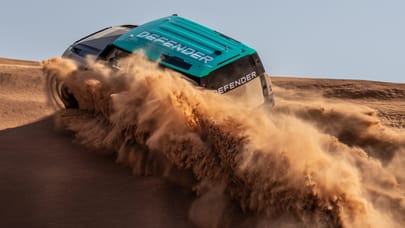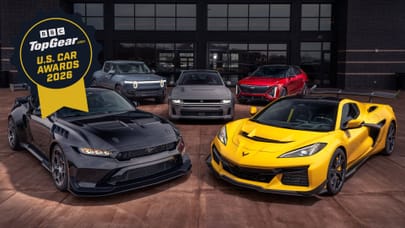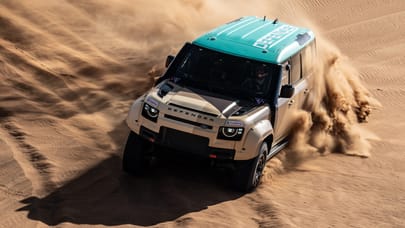
Hyundai’s new tech melts windscreen ice three times faster than... regular tech
Innovating on Ford’s Quickclear, testing's started on the Genesis GV70 in a pleasantly fresh -18*C
Hyundai has been working on – wait for it – the future of windscreen technology. Heated windscreen technology, to be precise.
It’s been testing a 48-volt system dubbed - and it really does what it says on the tin here - 'Metal-Coated Heated Glass'; an innovation that Hyundai reckons works three times faster to defrost the screen than conventional systems in sub-zero conditions.
Of course, Ford has been putting metal threads into glass since the 1970s with its QuickClear technology. So what makes this new stuff so special?
Hyundai’s variation on this theme uses 20 layers in the windscreen, one of which is metal coated. The defrosting and demisting magic happens when the metal layer is heated up using the 800V architecture of the all-electric Genesis GV70 and GV60 – which we'll discuss more in a bit.
The tests of the metal-coated heated glass – conducted in temperatures as low as -18*C – have already shown a massive reduction in the time spent clearing the windscreen in the wintry weather. It took under five minutes to defrost and defog, comparing positively to the 15-plus minutes it took to do the same using a 13.5-volt conventional system. Step away from the de-icer and credit card.
This fancy windscreen tech isn’t just for the cold weather either. We’re told the metal coating layer can reflect the sun’s rays, blocking “at least 60 per cent of solar energy” and helping to cool the cabin by two or three degrees in warmer weather, too. Sounds very neat, albeit not very cheap.
Parent company Hyundai singled out the Genesis models for testing, as the tech's been developed to make EVs more efficient. Because you’re not sticking the conventional fan-based air-con on full blast, it reckons you’re using about about 10 per cent less power, which of course means more range.
The carmaker also says it's future-proof, ready for the world of autonomous cars, their cameras and any other fancy augmented-reality features that'll need a nice, clean windscreen.
Neither Hyundai or Genesis have confirmed the models this Metal-Coated Heated Glass feature will be available in, but we can only hope that between now and then, it gets given a snappier title.
Top Gear
Newsletter
Thank you for subscribing to our newsletter. Look out for your regular round-up of news, reviews and offers in your inbox.
Get all the latest news, reviews and exclusives, direct to your inbox.
Trending this week
- Car Review
BMW 1 Series
- Top Gear's Top 9
Nine dreadful bits of 'homeware' made by carmakers








